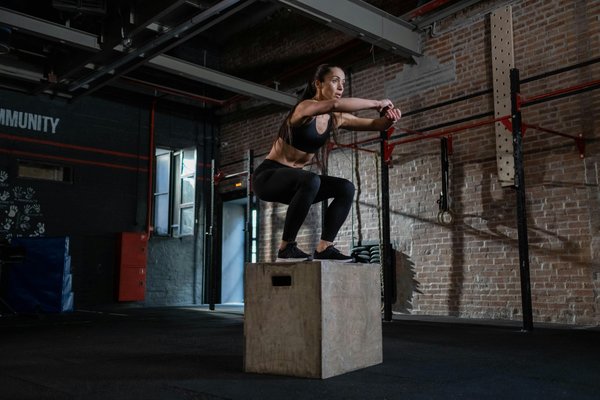Vigorous workouts may reduce appetite by a greater amount than less intense exercise, a new study suggests.
High-intensity exercise suppresses levels of the hormone ghrelin — which is responsible for stimulating appetite — more than moderate exercise, according to a study published last week in the Journal of the Endocrine Society. The effect may be more pronounced in women, the study authors found.
MORE: Standing for long periods can be bad for your health – just like sitting, study finds
"Ghrelin is a hormone released from the stomach, and has been shown to cross the blood-brain barrier and interact with (the) hypothalamus, which is the area of your brain that controls the perception of hunger," Kara Anderson, lead study author and postdoctoral fellow at the University of Virginia School of Medicine, told MedicalNewsToday. "Our results confirmed what our meta-analysis suggested: That higher intensity exercise would suppress hunger more than a lower intensity exercise bout. Based on what we know about how ghrelin can interact with the 'hunger center' of the brain — the hypothalamus — these results were not surprising."
Ghrelin, commonly referred to as "the hunger hormone," increases activity in a specific area of the brain, causing people to feel hungry. People with higher levels of the hormone generally have more difficulty losing weight, and higher levels are also associated with conditions like Hashimoto's thyroiditis, Prader-Willi syndrome, anorexia and bulimia.
Previous research has established how exercise can help lower ghrelin levels, but the researchers of the new study said this has not been well researched in women. Furthermore, prior studies focused only on one form of ghrelin, known as acylated ghrelin, which is responsible for controlling hunger and other bodily processes. But the new study includes a second form, deacylated ghrelin, which makes up about 80% of the ghrelin in the body. Deacylated ghrelin previously was thought to be inactive, but scientists now believe it is involved in various biological activities like glucose metabolism and the movement of the gastric system.
The study involved eight men with an average age of 43 and six women with an average age of 32. Researchers tested their ghrelin levels before they started exercising, after moderate-intensity exercise, and after high-intensity exercise. The participants also self-reported their appetite levels following each session.
The women had higher overall levels of ghrelin and higher amounts of the deacylated ghrelin, researchers found. Both men and women had reduced deacylated ghrelin levels after vigorous exercise when compared to moderate exercise, but the women had a more dramatic drop. The decreased ghrelin levels didn't clearly correlate with a drop in perceived hunger for either group, though, according to the study authors.
"The hunger scores in response to exercise are pretty similar between men and women," Anderson told Healthline. "So, there's still a lot of research to be done, but this does suggest that males and females may respond to exercise differently, especially considering their ghrelin levels."
What is vigorous exercise?
Vigorous activity is defined by the Centers for Disease Control and Prevention as involving breathing that's hard and fast, as well as a large increase in heart rate.
Examples include jogging, running, swimming laps, bike riding, jumping rope, weight training, boxing and aerobic machines. To qualify as vigorous activity, a person's heart rate should be 77% to 93% of their maximum heart rate, according to MedicalNewsToday. To calculate this, subtract one's age from 220 and multiply that by 0.77, and then multiply that number by 0.93.
Vigorous physical activity benefits also include better sleep, bone health and quality of life. People who engage in vigorous exercise also have a reduced risk for heart disease, stroke, type 2 diabetes, high blood pressure, dementia and some cancers.
The CDC recommends adults either engage in 75 minutes of vigorous-intensity activity each week, 150 minutes of moderate-intensity activity or an equivalent combination.
Follow Franki & PhillyVoice on Twitter: @wordsbyfranki
| @thePhillyVoice
Like us on Facebook: PhillyVoice
Have a news tip? Let us know.


